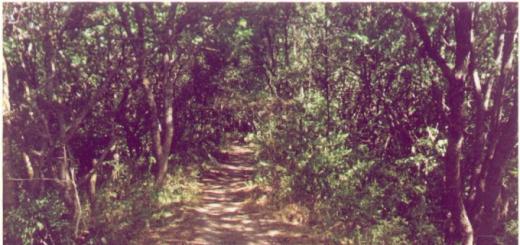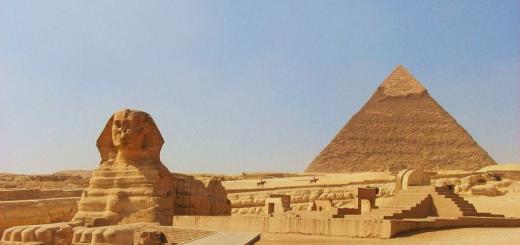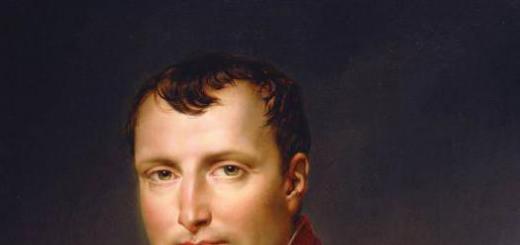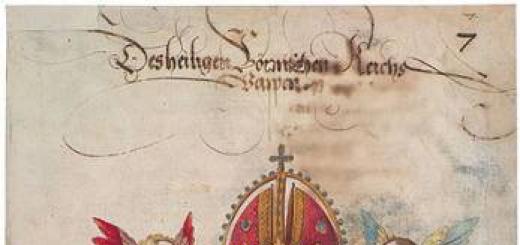Writing
Although Sima Qian's version dominated for 2000 years, research by professors John Knoblock and Jeffrey Riegel in translating the annals of Luishi Chunqiu showed a discrepancy between the date of the onset of pregnancy and the birth of the child (year), which allowed them to conclude that the version of Lu Buwei's paternity was falsified, in order to question the origin of the emperor.
Regency of Lü Buwei 246-237 BC e.
Ying Zheng unexpectedly received the throne of the Qin Wang in 246 BC. e. at the age of 13. At this time, the kingdom of Qin was already the most powerful in the Middle Kingdom. Prime Minister Lü Buwei also became his guardian. Lü Buwei valued scholars, invited about a thousand scholars from all over the kingdoms, who argued and wrote books. Thanks to his activities, it was possible to collect the famous encyclopedia "Luishi Chunqiu".
In 246 BC. e. engineer Zheng Guo from the Kingdom of Han began construction of a large 150 km long irrigation canal in present-day Shaanxi. The canal connected the Jinghe and Luohe rivers. The canal was built for ten years and irrigated 40,000 qing (264.4 thousand hectares) of arable land, which led to a significant economic rise of Qin. After completing only half of the work, the engineer Zheng Guo was convicted of spying on the Han, but he explained to the wang the benefits of construction, was forgiven and completed the grandiose project.
After the death of Ying Zheng's father Zhuangxiang, Lü Buwei began to openly cohabit with his mother Zhao. She was presented with the eunuch Lao Ai, who, according to Sima Qian, was not a eunuch at all, but his mother's cohabitant, and that the castration documents were forged for bribes.
Lao Ai concentrated a lot of power in his hands, and Ying Zheng was dissatisfied with his position as a child who was not considered. In 238 BC. e. he came of age and resolutely took power into his own hands. In the same year, he was informed about the cohabitation of his mother and Lao Ai. He was also informed that his mother had secretly given birth to two children, one of whom was preparing to become his successor. Wang ordered officials to conduct an investigation, which confirmed all suspicions. During this time, Lao Ai forged state seal and began to gather troops to attack the palace. Ying Zheng instructed the advisers to urgently gather troops and send them against Lao Ai. There was a battle near Xianyang, in which several hundred people were killed. Lao Ai, his relatives and accomplices were executed, the guilty from among the courtiers were severely punished.
In 237 B.C. e. Lü Buwei was deposed and exiled to the kingdom of Shu (Sichuan) for his connections with Lao Ai, but committed suicide on the way. Ying Zheng Zhao's mother was also sent into exile, who, after exhortations from advisers, was returned to the palace.
Reign with Prime Minister Li Si 237-230 BC e.
After the removal of Lü Buwei, the legist Li Si, a student of Xun Tzu, became prime minister.
Not trusting his advisers, Ying Zheng gave the order to expel all non-Qin officials from the country. Li Si wrote a memorandum to him, in which he argued that such a measure would only lead to the strengthening of the enemy kingdoms, and the decree was canceled.
Li Si provided big influence on the young ruler, therefore, some experts, not without reason, believe that it is he, and not Ying Zheng, who should be considered the true creator of the Qin empire. Judging by the available data, Li Si was determined and cruel. He slandered his talented fellow student Han Fei, a brilliant theoretician of late legalism, and thereby brought him to death (later, after reading Han's writings, Ying Zheng regretted that he had imprisoned him, where, according to legend, he had taken the poison received from Li Si) .
Ying Zheng and Li Si continued successful wars with rivals in the east. At the same time, he did not disdain any methods - neither the creation of a network of spies, nor bribes, nor the help of wise advisers, the first place among which was taken by Li Si.
Unification of China 230-221 BC e.
Everything went towards the unification of China led by the Qin dynasty. The states of Central China looked at Shaanxi (the mountainous northern country that served as the core of the Qin possessions) as a barbarian outskirts. State structure towering kingdom was distinguished by a powerful war machine and a lot of bureaucracy.
At the age of 32, he took possession of the principality in which he was born, at the same time his mother died. At the same time, Ying Zheng proved to everyone that he had a very good memory: after the capture of Handan, he arrived in the city and personally led the extermination of the old enemies of his family, who thirty years ago, during the hostage of his father, humiliated and insulted his parents. The following year, Jing Ke, an assassin sent by Yan Dan, made an unsuccessful attempt on Ying Zheng. The Qin ruler was on the verge of death, but personally fought off the "killer" with his royal sword, inflicting 8 wounds on him. Two more attempts were made on him, which also ended in failure. Ying Zheng captured one by one all six non-qin states into which China was divided at that time: in 230 BC. e. The kingdom of Han was destroyed in 225 BC. e. - Wei, in 223 BC. e. - Chu, in 222 BC. e. - Zhao and Yan, and in 221 BC. e. - Qi. At the age of 39, Zheng united all of China for the first time in history, and in 221 B.C. e. assumed the throne name of Qin Shihuang, establishing a new imperial dynasty, Qin, and naming himself its first ruler. Thus, he put an end to the Zhangguo period with its rivalry of kingdoms and bloody wars.
Title of the first emperor
Given name Ying Zheng was given to the future emperor by the name of the month of birth (正), the first in the calendar, the child was named Zheng (政). IN complex system names and titles of antiquity, the name and surname were not written side by side, as is the case in modern China, so the name Qin Shi Huang itself is extremely limited in use.
The unprecedented power of the ruler of the imperial era required the introduction of a new title. Qin Shi Huang literally means "founding emperor of [the] Qin dynasty". The old name wang, translated as "monarch, prince, king", was no longer acceptable: with the weakening of Zhou, the title of wang was devalued. Initially terms Juan("ruler, august") and Di(“emperor”) were used separately (see Three rulers and five emperors). Their unification was intended to emphasize the autocracy of a new type of ruler.
The imperial title thus created lasted until the Xinhai Revolution of 1912, until the very end of the imperial era. It was used both by those dynasties whose power extended to the entire Celestial Empire, and by those who only sought to reunite its parts under their command.
Rule of a united China (221-210 BC)
Board reorganization
The colossal campaign to unify the Celestial Empire was completed in 221 BC. BC, after which the new emperor carried out a series of reforms to consolidate the won unity.
Xianyang was chosen as the capital of the empire in the original Qin possessions, not far from modern Xian. Dignitaries and nobles of all the conquered states were transferred there, a total of 120 thousand families. This measure allowed the Qin emperor to take the elite of the conquered kingdoms under reliable police control.
On the urgent advice of Li Si, the emperor, in order to avoid the collapse of the state, did not appoint relatives and new lands close to the princes.
In order to suppress centrifugal tendencies on the ground, the empire was divided into 36 jun military regions (Chinese trad. 郡, pinyin: June), at the head of which were appointed managers and officials.
The weapons taken from the defeated princes were collected in Xianyang and melted down into huge bells. 12 bronze colossi were also cast from weapon metal, which were placed in the capital.
A reform was carried out under the slogan “all chariots with an axis of the same length, all hieroglyphs are of standard writing”, a single network of roads was created, disparate systems of hieroglyphics of the conquered kingdoms were abolished, a single monetary system was introduced, as well as a system of measures and weights. These measures laid the foundation for China's cultural and economic unity and outlasted the short-lived Qin empire by millennia. In particular, modern Chinese hieroglyphic writing goes back to the Qin script.
Great construction sites
Emperor Qin Shi Huang used the labor of hundreds of thousands and millions of people for grandiose construction projects. Immediately after declaring himself emperor, he began to build his own tomb (see Terracotta Army). He built a three-lane road network across the country (the central lane for the emperor's chariot). Construction was a heavy burden for the population.
The great Wall of China
As a sign of unity, the defensive walls that separated the former kingdoms were demolished. Only the northern part of these walls was preserved, its separate segments were strengthened and interconnected: in this way, the newly formed Great Wall of China separated the Middle State from the barbarian nomads. According to estimates, several hundred thousand (if not a million) people were driven to build the wall. . At the same time, loopholes for archers are designed so as to hit the enemy approaching from the south, which indicates not the Chinese, but the anti-Chinese nature of the fortifications. Also, topographically, the walls are laid with the maximum possible access to the walls from the side of the steppes and deserts, and the inaccessibility for capture from the side of the Chinese state.
Lingqu Canal
Epan Palace
The emperor did not wish to live in the central capital's Xianyang Palace (咸陽宮), but began building the huge Epan Palace (阿房宫) south of the Weihe River. Epan is the name of the emperor's favorite concubine. The palace began to be built in 212 BC. e., several hundred thousand people were driven to the construction, innumerable treasures were stored in the palace and many concubines were housed there. But the Epan Palace was never completed. Soon after the death of Qin Shi Huang, rebellions broke out throughout the Qin-occupied territory, and the Qin empire collapsed. Xiang Yu (項羽) was able to inflict heavy defeats on the Qin troops. At the end of 207 BC. e. the future Han emperor Liu Bang (then Pei Gong), an ally of Xiang Yu, occupied the Qin capital Xianyang, but did not dare to establish himself and a month later let Xiang Yu into Xianyang, who in January 206 BC. e. , struck by unthinkable luxury, ordered to burn the palace, and his troops plundered Xianyang and killed the inhabitants of the Qin capital.
Detours of the country
During the last ten years of his life, the emperor rarely visited his capital. He constantly inspected various corners of his state, making sacrifices in local temples, informing local deities about his achievements and erecting stelae with self-praise. By detours of his possessions, the emperor initiated the tradition of royal ascents to Mount Taishan. He was the first of the Chinese rulers to go to the seashore.
The trips were accompanied by intensive road construction, the construction of palaces and temples for sacrifices.
Starting from 220 BC. e. the emperor undertook five major inspection trips across the country at distances of thousands of kilometers. He was accompanied by several hundred soldiers and many servants. In order to disorient ill-wishers, he sent several different carts around the country, while he himself was hiding behind a curtain, and even the soldiers did not know whether the emperor was traveling with them or not. As a rule, the purpose of the trips was the Pacific coast, to which the emperor first came in 219 BC. e.
Quest for immortality
In 210 BC. e. the emperor was told that the wonderful islands of the immortals are difficult to reach, as they are guarded by huge fish. The emperor himself went to sea and killed a huge fish with a bow. But he became ill and was forced to return to the mainland. The emperor could not recover from his illness and after a while he died.
"The Burning of Books and the Burial of Scribes"
Confucian scholars saw empty superstition in their search for immortality, for which they paid dearly: as the legend says (that is, it is unreliable), the emperor ordered 460 of them to be buried alive in the ground.
In 213 BC. e. Li Si persuaded the emperor to burn all the books, except for those that dealt with agriculture, medicine, and divination. In addition, books from the imperial collection and chronicles of the Qin rulers were spared.
Growing dissatisfaction with the government
IN last years disillusioned with gaining immortality, Qin Shi Huang traveled less and less around the borders of his state, fencing himself off from the world in his huge palace complex. Avoiding contact with mortals, the emperor expected to be seen as a deity. Instead, the totalitarian rule of the first emperor gave rise to a growing number of disaffected every year. Having revealed three conspiracies, the emperor had no reason to trust any of his associates.
Death
Qin Shihuang's death occurred during a trip around the country, in which the heir Hu Hai accompanied him along with the head of the office, the eunuch Zhao Gao, and the chief adviser Li Si. The date of death is considered to be September 10, 210 BC. e. in a palace in Shaqiu, two months away from the capital. He died after consuming immortality elixir pills containing .
When Qin Shihuang suddenly died, Zhao Gao and Li Si, fearing that the news of the emperor's death would cause an uprising in the empire, decided to hide his death until they returned to the capital. Most of the retinue, except for Hu Hai's youngest son, Zhao Gao, Li Si, and a few other eunuchs, were unaware of the emperor's death. The body of the emperor was placed on a wagon, in front of and behind which carts of rotten fish were ordered to hide the putrid smell. Zhao Gao and Li Si changed the emperor's clothes daily, carried food, and received letters, answering them on his behalf. In the end, the emperor's death was announced upon his arrival in Xianyang.
According to tradition, the eldest son was to inherit the empire. crown prince Fu Su but Zhao Gao and Li Si forged the emperor's will, appointing Hu Hai's youngest son as heir. The will also ordered Fu Su and General Meng Tian, who were on the northern border, to commit suicide. Fu Su faithfully obeyed the order, and General Meng Tian, who suspected a plot, sent a letter several times for confirmation and was placed under arrest. Hu Hai, overjoyed at the news of his brother's death, wanted to pardon Meng Tian, but Zhao Gao, fearing Meng's revenge, had Meng Tian and his brother executed. younger brother Prosecutor Meng Yi, who in the past suggested that Shi Huang execute Zhao Gao for one of his crimes.
Hu Hai, who took the throne name of Qin Ershi Huangdi, nevertheless showed himself to be an incapable ruler. Adherents of the former dynasties immediately rushed into the struggle for the division of the imperial inheritance, and in 206 BC. e. Qin Shihuang's entire family was exterminated.
Tomb
Nothing illustrates the power of Qin Shi Huang better than the size of the burial complex, which was built during the life of the emperor. The construction of the tomb began immediately after the formation of the empire near present-day Xi'an. According to Sima Qian, 700 thousand workers and artisans were involved in the creation of the mausoleum. The perimeter of the outer wall of the burial was 6 km.
To accompany the emperor in the other world, an innumerable terracotta army was sculpted. The faces of the warriors are individualized, their bodies were previously brightly colored. Unlike his predecessors - for example, the rulers of the Shang state (circa 1300-1027 BC) - the emperor refused mass human sacrifices [ ] .
Reflection in historiography
The reign of Qin Shi Huang was based on the principles of Legalism, set forth in the treatise Han Fei Tzu. All surviving written evidence about Qin Shi Huang is passed through the prism of the Confucian worldview of Han historiographers, especially Sima Qian. It is very likely that the information they cite about the burning of all books, the ban on Confucianism and the burial of the followers of Confucius alive reflected Confucian anti-Qin propaganda directed against the legalists.
In the traditional depiction, Qin Shi Huang's appearance as a monstrous tyrant is tendentiously exaggerated. It can be considered established that all subsequent states of China, starting with the reputedly tolerant Western Han dynasty, inherited the administrative-bureaucratic system of government that was created under the first emperor.
Reflection in art
In the theatre
- In 2006, the premiere of the opera The First Emperor took place on the stage of the Metropolitan Opera (New York) (composer - Tan Dun, director - Zhang Yimou). Sang the part of the emperor
MOSCOW, December 28 - RIA Novosti. Qin Shi Huang, the first emperor of China, really tried to achieve immortality and ordered all the inhabitants of the empire to look for the recipe for the "elixir of eternal life", according to the online publication Live Science.
Scientists have found traces of the legendary "great flood" in ChinaArchaeologists have found traces of the fact that during the Xia dynasty, to which, according to legend, the founder of China, Emperor Huangdi belonged, there really was a powerful flood of the Yellow River and a "great flood" 38 meters high, "defeated" by Emperor Yu in 1920 BC era."The issuance of such a decree and the very fact that people really tried to fulfill it suggests that Shi Huang-di created a very reliable and efficient system of executive and legislative power, which made it possible to realize the wishes of the emperor at the level of the whole country at a time when transport and communication systems did not actually exist," said Zhang Chunlong, head of the excavation.
The founder of China is traditionally considered the "yellow emperor" Huang-di, who ruled the Celestial Empire around 2800 BC. Legends attribute to him magical powers, including an unusually long life and incredible endurance.
The first real emperor considered himself his spiritual heir united China Qin Shi Huang, who in 221 BC united seven warring kingdoms into a single empire with a common set of laws and a power vertical. In subsequent years, he gained a reputation as a cruel but fair ruler who brought order and peace to China.
Due to large-scale projects, such as the construction of the Great Wall and the giant mausoleum in Xi'an, as well as due to numerous assassination attempts, Shi Huangdi's personality has acquired no fewer legends than the "yellow emperor". Chinese archaeologists unexpectedly found out that the ruler of China himself believed in some of these myths. This is evidenced by unusual find in Hunan province.
Zhang says his team has been excavating in the central part of the province for more than a decade. During this time, archaeologists have managed to find thousands of artifacts from the time of Shi Huang, including a huge collection of bamboo tablets with a variety of information about the life of the empire.
Recently, Chinese archaeologists have completed the analysis of the medical part of these archives. There, an official decree of Shi Huangdi was found, in which he ordered all officials and residents of the Celestial Empire to look for the "elixir of immortality" or collect information about it and immediately transfer it to the capital.
This official document thus confirms some of the legends associated with Shi Huangdi. Many Chinese chroniclers of that time wrote that the emperor was obsessed with thoughts of immortality and constantly traveled around the country in search of sages or something like the "fountain of youth" from myths. Ancient Greece capable of giving him eternal life.

These searches, as evidenced by the tablets discovered by the Zhang team, were carried out not only by the emperor himself, but by the entire empire as a whole. For example, the ruler of the town of Duxiang wrote that the locals had not yet found the elixir, and the inhabitants of one of the villages in the modern province of Shandong offered the emperor to try a rare plant that grew on a mountain nearby.
It is possible that it was these searches that killed the first emperor of China - he died at the age of 39 due to mercury poisoning. She could be part of the "elixirs of immortality" based on cinnabar (a bright red compound of mercury and sulfur), which Shikhuandi, as the chroniclers write, used in the last years of his life.
The first emperor of China - Qin Shihangdi - is a significant figure for the Chinese. He is considered the founder of the current state.
China until 221, when the emperor declared himself the ruler of all China, consisted of several kingdoms,
Ying Zheng (that was the emperor's real name) became the ruler of Qin in 246 BC at the age of 13. Having reached the age of majority in 238, Ying Zheng completely took power into his own hands.
The reign of Ying Zheng is associated with the largest construction projects in the history of China and ancient world. One of them is a large irrigation canal, which in 246 began to be built by the engineer Zheng Guo from the Han kingdom. The length of the channel was 150 km. and it took ten years to build. As a result of the construction, the amount of land suitable for agriculture increased by 264.4 thousand hectares, which led to an unprecedented economic growth in Qin.
Ying Zheng led successful wars. Gradually, he captured one by one all six states into which China was divided at that time: in 230 BC. e. Han, in 225 - Wei, in 223 - Chu, in 222 - Zhao and Yan, and in 221 - Qi.
In this way, he unified all of China and in 221 BC took the throne name of Qin Shihuang, establishing a new imperial dynasty, Qin, and naming himself its first ruler.
The capital of the empire was Xianyang, not far from modern Xi'an.
In addition to the reforms of writing, the monetary system, the creation of roads and other things, the emperor began grandiose construction projects, the burden of which fell on the shoulders of millions of ordinary people.
Immediately after declaring himself emperor, Qin Shi Huang began to build his tomb.

The construction of the tomb began in 247 BC. e. More than 700 thousand workers and artisans were involved in its construction. Qin Shi Huang was buried in 210 BC. e. was buried with him great amount jewelry and handicrafts. Also, 48 of his concubines were buried alive with the emperor.
A whole army of clay sculptures was hidden underground, the so-called.

The warriors and horses of the Terracotta Army were made in various parts of China.
The figures of warriors are real works of art, they were made individually. Each statue has its own unique features and even facial expressions.
Another no less significant construction project of Qin Shi Huang was. During its construction, the pre-existing northern walls were used, which were strengthened and connected to each other.
Construction lasted 10 years, the number of workers reached 300 thousand. The landscape on which the wall was built was complex (mountain ranges, gorges), so the construction was fraught with significant difficulties.

For the construction of the Great Wall of China, stone slabs were used, which were laid close to each other over layers of compacted earth. During the construction of the Wall, a large embankment was erected in the east. Subsequently, sections of the Wall began to be faced, for which stone and brick were used.
The emperor died in 210 during the next detour of his possessions.
However, the Qin dynasty also ended there. After the death of the emperor, an uprising broke out and his entire family was exterminated.
according to wikipedia
Russian school textbooks on history are not described in great detail. It is unlikely that everyone understands that the III century BC. e., when Qin Shi Huang, the first Chinese emperor, united the warring disunited kingdoms, this is also the time of the Punic Wars. And the events that took place in the East are no less significant than those that shook Europe and its closest neighbors.
Qin Shi Huang promoted the ideology of order and a strong central government, which is quite relevant for modern humanity. He wanted to live forever. As a result, if not forever, then his mortuary pyramid lives for a very long time, which has become the largest archaeological sensation XX century. The so-called Terracotta Army- a unique monument, which was already brought to Moscow in the 21st century and exhibited in the State Historical Museum.
Qin Shi Huang was born in 259 BC. e. in Handing, in the principality of Zhao of the kingdom of Qin. His father Zhuangxiang-wang was a ruler, it follows from his name, because "wang" means "prince" or "king".
The mother was a concubine. That is, Qin Shi Huang is a bastard (illegitimate, illegitimate child). Furthermore, the mother passed to Zhuangxiang-wang from the previous master, the courtier Lü Buwei. And there were rumors that the son was actually his. Lu Buwei, by the way, patronized the boy in every possible way. However, it was not very flattering to be his son, because, unlike Zhuangxiang-wang, he was not a prince and was even engaged in trade.
The origin can explain a lot in the character of Qin Shi Huang. History knows many examples of how it is precisely the illegitimate, and therefore the wounded, who are desperately striving for power. The great one has repeatedly written about this. There is such a special desire - to prove to everyone that although you are not as noble as others, you are the strongest.
The boy was named Ying Zheng, which means "first". The guess is brilliant! After all, he actually became the first Chinese emperor.
As a result of complex court intrigues, Lu Buwei was able to ensure that at the age of 13 Zheng became the ruler of the state of Qin, one of the seven Chinese kingdoms. China was going through a period of fragmentation in those days, and each of the principalities had relative independence.
Chinese civilization is one of the oldest in the world. Its origin dates back to the 14th century BC. e. It originated, like some other ancient cultures of the East, in the valley of two great rivers - the Huang He and the Yangtze. River civilization is largely dependent on irrigation. By fighting with neighbors, it is possible to simply destroy the irrigation system that provides the fields with water. Both drought and flooding can cause crop loss, which means famine.
In the VIII-V centuries BC. e. China was going through a period of fragmentation and internal wars. However, even despite this, the ancient Chinese were characterized by the awareness of themselves as a single great civilization, China - a beautiful world, surrounded by "evil barbarians" and therefore forced to defend itself. At the same time, the Chinese actually had something to be proud of. They already had writing, they mastered metallurgy and were able to create a perfect irrigation system.
It should be noted that 7 Chinese kingdoms is a semi-legendary concept. For example, Britain on the islands in the Middle Ages also began with the so-called 7 Anglo-Saxon kingdoms. This is a kind of symbol of fragmentation. The principalities of China are Yan (northeast), Zhao (north), Wei (northwest), Qin (also northwest), Qi (east), Han (center) and Chong (south).
An important role in overcoming the mosaic disunity was played by the kingdom of Qin, located on the northwestern border, in the foothills, in the bend of the Yellow River. It was not the most advanced economically, because its main forces went to contain the barbarians advancing from the northwest, including the Xiongnu - the future Huns. This is what forced the inhabitants of the Qin kingdom to create a military organization, more powerful than its neighbors.
Researchers compare the internal structure of the Qin kingdom with military organization Sparta. There are such states - not the most advanced in economic terms, but the most forcedly organized. The strictest discipline, excellent possession of weapons - this puts them in the forefront. So Qin turned out to be the most noticeable among the 7 Chinese kingdoms.
For the first 8 years on the throne, Zheng did not really rule. Power was in the hands of his patron Lü Buwei, who named himself regent and first minister, also receiving the official title of "second father".
Young Zheng was imbued with a new ideology, the center of which at that time was the principality of Qin. It was called legalism, or the school of law. It was the ideology of totalitarian power. Boundless despotism is generally characteristic of the Ancient East. Let us recall the ancient Egyptian pharaohs, who realized themselves as gods among people. And rulers Ancient Assyria They said about themselves: "I am the king, the king of kings."
In ancient China, the ideology of legalism replaced the philosophy developed by the famous thinker Confucius (Master Kun, as he is called in documents) about 300 years before Shi Huangdi. He organized and headed China's first private school. Everyone was accepted into it, and not just the children of aristocrats, because the main idea of Confucius is to morally re-educate society through the re-education of rulers and officials.
This is in many ways close, for example, to the views of the ancient Greek philosopher Plato, who in the 5th-4th centuries BC. e., about a century after Confucius, also spoke of the need to re-educate the rulers and even tried to move on to practical activities. Plato, as you know, irritated one of the tyrants to such an extent that he sold him into slavery.
Confucius, according to the famous historian Ancient China Sima Qian offered his services to 70 rulers, saying, "If someone uses my ideas, I can do something useful in just one year." But no one answered.
The ideas of Confucius anticipate the philosophy of humanism. For him, the working people should be subordinate and hardworking, but the state is obliged to take care of them and protect them - then there will be order in society. It was Confucius who taught: "A position does not always make a person a sage." And his dream was a sage in a high position.
As Sima Qian wrote, Confucius was dissatisfied with the society of his day, saddened that the path of the ancient rulers was abandoned. He collected and processed ancient hymns, poems about the unity of the people and power, about the need to obey the ruler, who must be kind to the people. He saw the social structure as a close-knit family. The poet Confucius was credited with authorship, but, apparently, he actually only collected these works.
In the opinion of young Zheng, who was carried away by the ideas of legalism, the law is supreme power coming from heaven, while the highest ruler is the bearer of this supreme power.
238 BC e. Zheng began to rule on his own. He exiled Lü Buwei, suspecting - perhaps not unfoundedly - of preparing a rebellion. After he was forced. The rest of the conspirators were brutally executed. Among others is Zheng's mother's new lover, Lü Buwei's henchman Lao Ai. The era of great executions began.
Qin Shi Huang became the sovereign master of a small but rather warlike principality. For the first 17 years of his independent reign, he constantly fought. His right hand a certain Li Si became. It was a terrible person. Coming from the bottom, from a remote village, he turned out to be very cunning and very warlike. Li Si ardently shared the ideology of legalism, giving it a certain cruel direction: he assured that the law and the punishment that ensures it, and therefore rigidity and fear, are the basis of the happiness of the whole people.
By 221 BC. e. the ruler of Qin was able to conquer the remaining six Chinese kingdoms. On the way to the intended goal, he used both bribery and intrigue, but more often - military force. Having subjugated everyone, Zheng declared himself emperor. It was from that time that he was called Shihuandi - "founding emperor" (similar to the ancient Roman designation "emperor Augustus"). The first emperor, Qin Shi Huang, declared that dozens of generations of his descendants would rule. He was gravely mistaken. But so far it seemed that this kind is really invincible.
The army of Qin Shi Huang was huge (its core was 300 thousand people) and had more and more advanced iron weapons. When she set off on a campaign against the Xiongnu, the barbarians were driven back, and the Chinese territory in the northwest was greatly expanded. To provide protection from a hostile environment, the first Chinese emperor ordered the former fortifications of the six kingdoms to be connected with new fortifications.
This marked the beginning of the construction of the Great Wall of China. It was erected, so to speak, by the whole world, but not voluntarily, but forcibly. Soldiers were the main building force. Hundreds of thousands of prisoners worked with them.
Strengthening internal order, Qin Shi Huang did not cease to fence himself off from the outside barbarian world. The mobilized population tirelessly built the Great Wall. The Chinese emperor and conqueror remained. He started wars in South China, in lands that were not among the 7 kingdoms. Expanding his possessions in the south, Qin Shi Huang advanced further and conquered ancient states Vietnam, which were called Nam Viet and Au Lak. There he began to forcibly relocate colonists from China, which led to a partial mixing of ethnic groups.
Qin Shi Huang thoroughly engaged in the internal affairs of the state. He is credited with the following slogan: "All chariots with an axis of the same length, all hieroglyphs of standard writing." This meant the principle of uniformity literally in everything. As you know, the ancient Romans also strove for standardization, in particular measures and weights. And it was very right, because it contributed to the development of trade. However, in Rome, with all the craving for order and discipline, elements of democracy were also preserved: the Senate, elected public offices, etc.
In China, uniformity supported, above all, an unrestricted central government. The emperor was declared the son of heaven. There was even an expression "mandate of heaven" - a mandate from higher powers for absolute power over every person.
Concerned about uniformity, Qin Shi Huang created an integral network of roads. In 212 BC. e. he ordered a road to be built from north to east, and then straight south to the capital. At the same time, it was ordered to lay it directly. Fulfilling the command of the emperor, the builders had to cut through the mountains and throw bridges over the rivers. It was a grandiose work, feasible only for the mobilized population of a totalitarian state.
The first Chinese emperor, Qin Shi Huang, introduced a unified system of writing hieroglyphs (in the conquered kingdoms, writing was somewhat different) and a common system of weights and measures. But along with these good deeds, there was also the organization of a unified system of punishments. The Legists argued: “The mind of the people can be trusted as much as the mind of a child. The child does not understand that suffering from a small punishment is a means to gain a great benefit.
Shi Huangdi made the city of Xianyang, not far from modern Xian, southwest of Beijing, in the center of modern China, the new capital of Shi Huangdi. The highest nobility from all six kingdoms was resettled there - 120 thousand families. In total, about a million people lived in the capital.
The entire territory of the state was divided into 36 administrative districts so that the former borders of the kingdoms were forgotten. The new division did not correlate in any way with either the former borders or with the ethnic characteristics of the population. Everything was based solely on violence.
Not a single person in the empire could have a personal weapon. It was taken away from the population, and bells and 12 giant statues were cast from the resulting metal.
213 BC e. - passed a law on the destruction of books. His enthusiast was Li Si. He considered it important that people forget about learning and never remember the past in order to avoid discrediting the present. Historian Sima Qian cited the text of Li Si's appeal to the emperor.
The courtier indignantly reports: “Hearing about the issuance of a decree about books, these people immediately begin to discuss it based on their own ideas! In their hearts they deny it and gossip in the alleys! They make a name for themselves by vilifying their superiors.” All this was considered unacceptable. The people should not have any ideas of their own, and the decisions of the authorities were not subject to discussion.
The conclusions of Li Si are as follows: it is impossible to put up with such a situation, since it is fraught with the weakening of the ruler. It is necessary to burn all the books stored in the imperial archives, except for the chronicle of the Qin dynasty. The Shi Ching and Shu Ching texts—the ancient hymns and historical documents that Confucius is credited with putting together—should be seized and burned indiscriminately. Only books devoted to medicine and divination were not subject to destruction. “Whoever wishes to study,” writes Li Si, “let him take officials as mentors.”
And of course, anyone who dares to talk about Shijing and Shu-ching must be executed, and the bodies of those executed should be exhibited in the marketplaces. If someone begins to criticize the present, referring to the past, and keep forbidden books, he should be executed along with the whole family, while destroying the three generations associated with this person.
About 50 years after the death of the emperor, immured books were found in the wall of one of the old houses. Dying, scientists hid them in the hope of preserving knowledge. This has happened many times in history: the ruler exterminated scientists, but the culture was later revived. And China under the Han Dynasty, established on the throne after the successors of Shi Huangdi, returned to the ideas of Confucius. Although, the great sage could hardly recognize himself in the new retellings.
His philosophy was largely based on patriarchal dreams of justice, equality, on the belief in the ability to re-educate the ruler. After the domination of legalism, neo-Confucianism absorbed the idea of the inviolability of order, the natural division of people into superior and inferior, and the need for a strong central authority.
To enforce his laws, Emperor Qin Shi Huang created a whole system of severe punishments. The types of execution were even numbered for order. At the same time, killing a person with a blow of a stick or piercing with a spear are easy ways of execution. In many cases, other, more sophisticated ones are needed. Shi Huangdi constantly traveled around the country, personally monitoring the execution of his orders.
Steles were erected everywhere with inscriptions such as, for example, the content: “The great principle of governing the country is beautiful and clear. It can be passed on to descendants, and they will follow it without making any changes.” The following words appeared on another stele: “It is necessary that people everywhere now know what cannot be done.” The steles of this emperor are the quintessence of despotism based on a prohibitive-punitive system of total control.
Qin Shi Huang built gigantic palaces for himself and ordered them to be connected by intricate roads. No one was supposed to know where the emperor was at the moment. He always and everywhere appeared unexpectedly. He had reason to fear for his life. Shortly before his death, three conspiracies were exposed one after another.
But Shi Huangdi did not want to die. He believed in the possibility of finding the elixir of immortality. To get it, numerous expeditions were equipped, including to the islands of the East Sea, probably to Japan. All sorts of rumors circulated about this distant and inaccessible land in ancient times. Therefore, it was not difficult to believe that the elixir of immortality was stored there.
Upon learning of the search for the elixir, the surviving Confucian scholars declared that this was superstition, such a remedy could not exist. For such doubts, 400 or 460 Confucians were, by order of the emperor, buried alive in the ground.
Having never obtained the coveted elixir, Qin Shi Huang focused his main attention on his tomb. It is difficult to say whether he really had the idea to have his gigantic army buried with him, and whether the emperor had to be persuaded to replace the living warriors with terracotta ones.
Shihuangdi died in 210 BC. e., at the next detour of possessions. His belief that the established order was unshakable was not justified. The collapse of the system came fairly soon after his death. Li Si ensured the suicide of the direct heir - the eldest son of Emperor Fu Su, and then ensured that all the sons and daughters of the first Chinese emperor Qin Shi Huang were destroyed one by one. They were finished by 206. Only his henchman Li Si remained alive, younger son Shihuangdi Er Shihuangdi, whom Li Si considered a puppet, a toy in his hands.
But the chief eunuch of the palace was able to deal with Li Si himself. The former omnipotent courtier was put to death according to all the rules that he propagandized and imposed, while according to the fourth, most monstrous option. A very instructive story for villains ...
206 BC e. - killed the second emperor Er Shi Huangdi. A powerful movement of social protest unfolded in the country. After all, the population has suffered for many years from cruel orders and the growth of taxes. It got to the point that about half of the income was confiscated from each person. Popular uprisings began, one of them, surprisingly, was successful. The Han Dynasty, which followed the Qin Dynasty, is the descendants of one of the victors who led a grandiose popular movement.
1974 - a Chinese peasant discovered in one of the villages near the city of Xi'an, not far from former capital Shi Huangdi, a fragment of a clay sculpture (video at the end of the article). They began to excavate - and 8 thousand terracotta soldiers were found, each about 180 cm high, that is, normal human growth. It was the Terracotta Army that accompanied the first emperor in last way. The burial of Qin Shi Huang himself has not yet been opened. But archaeologists believe that it is located there.
The first emperor of China became the subject of numerous books and films. It should be noted that he was very fond of the Nazis, who to this day mold their ideal out of him, forgetting how much the order he created cost the country and how short-lived it turned out to be.
N.Basovskaya
Qin Shi Huang, real name Ying Zheng, the first emperor of the Qin Dynasty, who put an end to centuries of wars among the warring clans, conquered six kingdoms, created and united the Chinese centralized state under his rule.
Ascension to the throne of Qin Shi Huang
The emperor was born in the town of Handan, back in 259. The emperor's father Zhuangxiang-wang was the grandson of the king from a concubine of not the highest rank, he, in accordance with the order of succession to the throne, had no chance of the Chinese throne.
There are several legends about the emperor's mother, according to one of them she was presented to his father already pregnant. This fact, although not proven, for a long time discredited the reputation of Shi Huangdi, setting up many enemies against him. According to another legend, the mother came from a very ancient and famous Chinese family, she escaped persecution by hiding with distant relatives.
After the death of the wang, the throne was inherited by Anguo Zhuangxiang-wang, he ruled for three years, and then the throne was taken by Ying Zheng.
Early years of reign and regency
Qin Shi Huang unexpectedly took the throne at the age of 13. Already at that time, the kingdom of Qin was the most powerful in the Celestial Empire, but the newly-made emperor, due to his age, could not rule himself, Lu Buwei was appointed as his regent.
After the death of the young emperor's father, his regent began to openly live with Zheng's mother. In addition, the eunuch Lao Ai was presented to her as a gift (a common practice to give a completely or partially castrated servant). According to scientists, Lao was far from being a eunuch, but a roommate of his mother.
The eunuch quickly concentrated power around himself, Shi Huangdi did not like this situation, since he was considered an unreasonable child.
Upon reaching adulthood, he quickly took power into his own hands and learned about his mother's relationship with the eunuch, and the mother secretly gave birth to two children, one of whom was already preparing to become the emperor's successor. After the investigation, all the cards were revealed and Lao Ai, in collusion with some state advisers, was preparing a war against Zheng. The battle took place near the town of Xianyang, where the Lao troops were defeated, by order, he, along with his relatives, was executed.
Lü Buwei was exiled as a punishment for liaising with traitors, and committed suicide on the way to the place of exile. He sent his mother into exile, but after several years of exile, she was returned to the royal court.
Minister Li Si
After the betrayal, Qin Shi Huang ordered all non-Qin nobles to be sent into exile. Li Si presented a report where he explained the inexpediency of such actions, because there would be a chain reaction of hostility towards the emperor, the decree was canceled.
The future prime minister had a huge impact on the still inexperienced Shi Huangdi, many scholars even believe that the creation of a centralized Qin empire is the merit of Li Si. The emperor, in tandem with a fairly intelligent prime minister, carried out brilliant wars with opponents from the east.
 Unification of the Qin Empire
Unification of the Qin Empire
All the actions of Shi Huangdi were aimed at the unification of China, because the country provided several cultural centers and barbarian outskirts.
He went down in history as a rather tough man, one who did not let his enemies relax. Already at the age of 32 he conquered the principality where he was born. After that, he entered the city with magnificent ceremony, and under his personal leadership all the haters of the family were destroyed, and there were many of them.
During his reign, several assassination attempts were made on Zheng, but all ended unsuccessfully, as he skillfully wielded a sword. After such attacks, he became even more hardened, and more and more expanded his possessions.
And at the age of 39, he united absolutely the whole of China, becoming sole ruler and heeded his throne name Qin Shi Huang, thereby founding his dynasty.
Rule by a single state
After the unification of the country, a long process of reform began to consolidate success. By order of the emperor, the capital was also transferred to the city of Xianyang, and all officials, advisers, nobles, along with their families, from all the conquered territories went there. So Qin Shi Huang could easily control them and monitor all their actions.
On the instructions of Li Si, he did not appoint his relatives as the rulers of the new lands (as was customary before Zheng), instead he divided the new state into 36 military regions, put an official and a manager at the head.
Imperial building

After the unification of the state, Shi Huangdi began to build his tomb, millions of people were involved in the grandiose construction. A lot, really! In addition, he paved seven roads across the country.
Another construction project was the construction of the Great Wall of China, it served to protect China and the barbarian states on the border. After centralization, all internal defensive walls and structures were demolished, the state needed protected borders.
Country travel
For the last 10 years, Zheng spent very little time in the capital, because of the vast territory, he constantly traveled around the country, participated in bloody rituals in temples, attended solemn events and praised himself.
During his journey, he ascended Mount Taishan, the first of the emperors stepped onto the seashore, and in whatever corner of the country he appeared, grandiose construction of roads, temples and palaces began everywhere.
Growing discontent
Since during the years of settlement Qin Shi Huang was more concerned with his immortality than with the affairs of the country, he began to travel around his possessions less and less. avoided meeting with ordinary people, he believed that he would be considered a deity, but instead growing discontent grew in totalitarian circles. After three conspiracies, he no longer trusted any of his associates, became unsociable and increasingly lost his levers of power. In addition, he was increasingly looking for the elixir of immortality while traveling around the country. And so he was informed that they had found the long-awaited island of immortality. He personally went to sea, but never reached the island, he became ill and soon died.
Tomb of Emperor Qin Shi Huang
40 years ago, the tomb of Qin Shi Huang was found, guarded by an army of warriors. The tomb, like many historical monuments, was discovered quite by accident, during the excavation of artesian sources by peasants in 1974, near the town of Xi'an.
Approximately 600 graves have been discovered to date. The main structure, the Underground Palace, has never been found; it is mentioned in many ancient sources.
The tomb became known to the whole world for a different reason, all thanks to those who guarded the rest of the emperor, as well as horses and chariots. Human figures have different facial expressions: joy, fear, sadness, anger, anger. Each warrior is a separate work of art, not similar to each other, the figures have different heights from 1.70 to about 2 meters. 
Many scholars and archaeologists believe that Zheng acted "humanely". Before his reign, for a relatively long time, together with the emperors, the most faithful warriors were buried in the tomb, and there were several thousand of them. Terracotta wars were created for Shi Huangdi, although living people were also buried in the tomb. According to some chronicles, several tens of thousands of people were buried there, and they were of different status and social position in society: builders, rich people, and several princes - Qin Shi Huang's competitors in the fight for the throne.
Many secrets of the tomb have not been revealed, so we are waiting for new research and discoveries.
Qin Shi Huang is the most unique character in history. A man who was not afraid to go against the system, a man who united huge country, and who is honored and respected in China.










